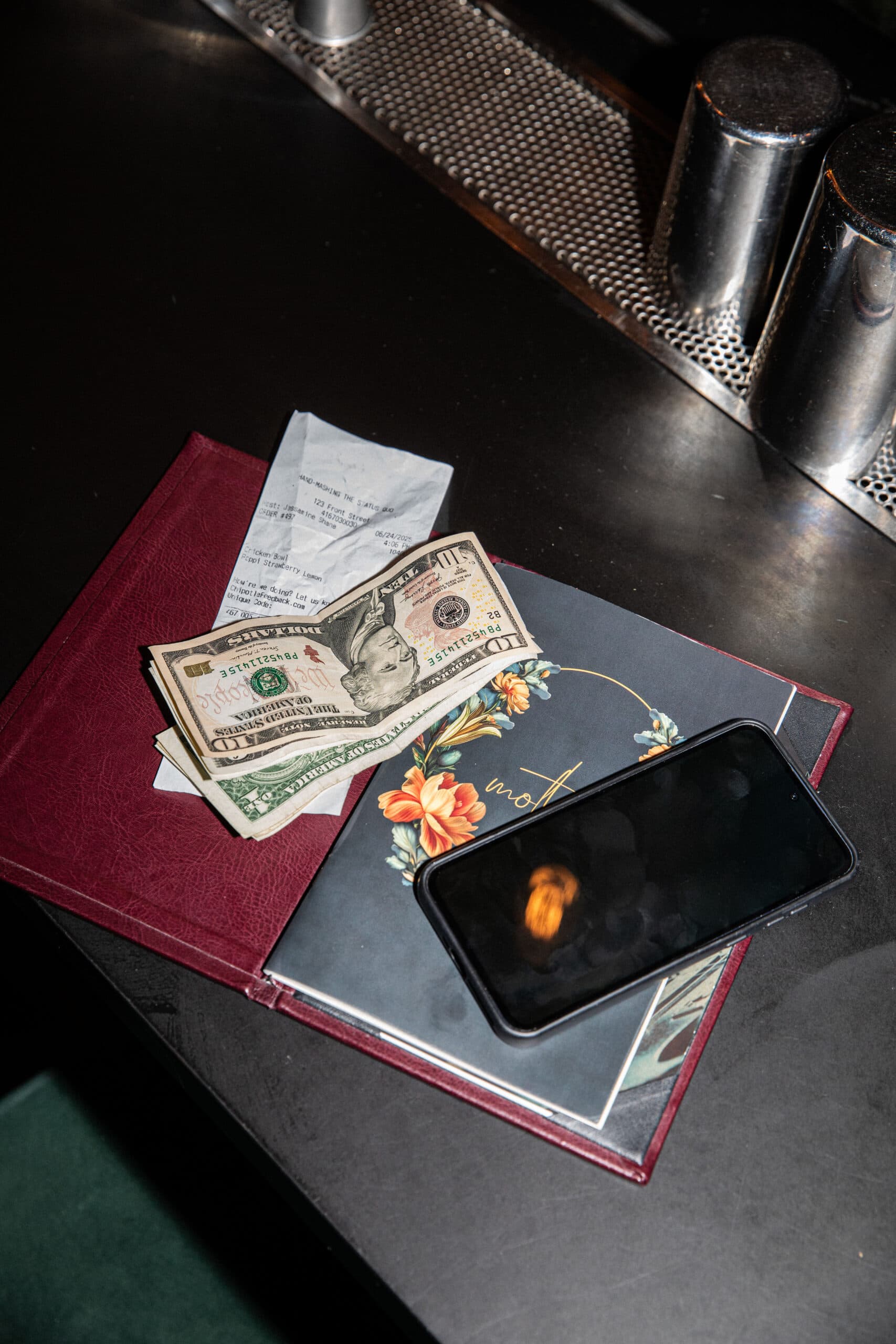Summary
Location: Maine, USA
Maine’s tipping laws go beyond federal rules. The state has a higher minimum wage than the national rate, while areas like Portland and Rockland mandate even higher hourly pay. Maine also considers automatic gratuities as tips and under the ownership of employees, unless clearly labeled otherwise in a banquet or private club setting.
Key provisions:
- Maine’s maximum tip credit is $7.55 per hour
- State minimum wage is $15.10 per hour, while Rockland requires $16.00 per hour and Portland requires $16.75 per hour
- Employers cannot deduct credit card processing fees from employee tips
- Overtime must be paid at $22.65 per hour (1.5x state minimum)
Maine has tip laws that differ from federal standards. If you’re a restaurant owner juggling shifts, schedules, and service staff, you need to understand these regulations completely. The state adds extra layers, like higher minimum wages and stricter tip-sharing rules. It’s important to keep up and stay compliant to succeed.
2026 Tipping Playbook
Learn how to manage, distribute, and track tips fairly—while staying compliant and keeping your team’s trust.

What counts as a tip in Maine?
Under Maine law, a tip isn’t just the extra cash a guest leaves on the table. It also includes automatic gratuities. These are the charges that show up on a check for large parties or catered events.
That’s different from federal law, which often treats those charges as service charges that belong to the business. In the Pine Tree State, they usually belong to your team.
Automatic gratuities must go to the service employee who earned them. Employer tips, where the business keeps or redistributes that money unfairly, aren’t allowed.
There’s one big exception: banquet or private club settings. If you clearly notify the guest that a service charge is being added (and that it’s not a tip), that money belongs to the employer. You can use it to cover minimum hourly wages or distribute it however you choose, as long as you follow wage laws and minimum cash pay rules.
Let’s say you host a birthday dinner for 12 guests, and your system adds a 20% auto-gratuity. Unless you clearly state it’s a service charge and you’re in a banquet setting, that amount legally belongs to your service employees. It counts toward their minimum wage, and if tips fall short, you still need to make up the difference to meet the state minimum.
Who qualifies as a tipped employee?
An employee is considered a tipped employee if they regularly earn more than $30 per month in tips. That’s the legal threshold. If they don’t meet it, they must be paid the full state minimum wage directly, with no tip credit allowed.
Typical roles that qualify include servers, bartenders, and sometimes bussers and hosts, but only if they’re tipped directly by customers. For example, a busser who receives a share of the tip pool based on table coverage could qualify. But a dishwasher or line cook, who never receives customer tips, wouldn’t meet the definition under state law.
There are gray areas, too. If an employee works dual roles, like waiting tables and washing dishes, you need to track their time carefully. If most of their work is tipped service, you may still apply for the tip credit.
But if non-tipped work makes up the bulk of their hours, or the tasks aren’t related (like running errands or deep cleaning), the tip credit doesn’t apply during that time.
Minimum wage and tip credit
In 2026, Maine’s minimum wage is $15.10 per hour. If your team includes tipped workers, you can use a tip credit to meet that number, but only if you follow the rules closely.
The maximum tip credit allowed under Maine law is $7.55, which is about half of the state minimum. That means the lowest minimum cash wage you can pay a service employee is $7.55 per hour. Their tips must make up the rest to meet or exceed the full minimum hourly wage.
If an employee’s tips don’t add up to meet the state minimum, you’re required to make up the difference. Also, tips only count toward the credit if the employee regularly earns more than $30 per month in tips.
Local minimum wage ordinances
Some cities in Maine have their own wage laws that go beyond the state rules. As of January 1, 2026, Rockland requires a local minimum wage of $16.00 per hour and Portland requires $16.75 per hour. If you operate in these cities, you must follow the higher local rate, even if the state minimum is lower.
Portland is also considering a proposal to gradually increase the minimum wage to $20 per hour within a few years. If it passes, wages would rise to $18 in 2027, $19 in 2028, and so on.
Just like state law, these cities allow a tip credit of up to 50%. That means the lowest minimum direct wage you can pay a service employee in Rockland is $8.00 per hour and in Portland, $8.38 per hour. Their tips must make up the rest to meet the local minimum wage.
Here’s what trips up a lot of employers: you have to pay based on where the work is performed, not where your business is based. If your employee clocks in for a shift in Portland, you must pay the city’s mandated rate, even if your headquarters is in another town.
This creates extra complexity for multi-location restaurants, food trucks, and catering companies. A server could work in two different cities on the same day, each with its own wage rules. To stay compliant, you need a flexible restaurant payroll system that tracks shift locations and applies the correct rate automatically.
Tip pools and ownership rules
Maine gives restaurant owners two ways to run a tip pool. The method you choose depends on whether you’re using the tip credit.
Option A: Using the tip credit
If you’re paying tipped workers a minimum cash wage below the full state minimum, your tip pool can only include service employees, like servers, bartenders, and bussers. These are team members who regularly receive tips. Managers and supervisors are not allowed in the tip pool, even if they also serve guests.
Option B: Not using the tip credit
If you decide to pay all employees the full minimum wage, your tip pool can be shared with non-service employees, too, like cooks, dishwashers, and other BOH staff. This can help reduce the pay gap between the front and back of house and boost morale.
Whichever path you choose, be sure to document your policy clearly and follow it closely. Tips are legally the property of the employee, and mishandling them, especially involving employer tips or misclassified roles, can lead to penalties and fines.
Credit card tips and processing fees
Credit card tips belong to your employees, not your business. That means you can’t deduct credit card processing fees from their tips, no matter how small the fee or how tight your margins.
Credit card tips must be treated just like cash tips. The full amount must go to the employee, and it must be paid out by the next regular payday, even if the payment from the credit card company hasn’t cleared your account yet. The law puts the responsibility on the employer, not the payment processor.
Overtime pay rules for service employees
If you have tipped employees working more than 40 hours a week, Maine has strict rules for how overtime must be paid. The law says overtime pay must be based on the state minimum wage, not the lower minimum cash wage you may be using with a tip credit.
With the state minimum at $15.10 per hour, the correct overtime rate is $22.65 per hour. This is 1.5x the full state minimum, and it applies to every overtime hour worked.
A common mistake is using the lower wage for overtime math—this leads to underpayment and can result in back wages, penalties, and interest. That’s why it’s critical to set your system up correctly.
Also, if your employee works dual roles, you need to be careful about when the tip credit applies. You can use it for non-tipped tasks that are related to their tipped job, like rolling silverware or cleaning their station. But you can’t apply the tip credit to unrelated work, like stocking inventory or running errands.
Build trust with a compliant and transparent tip culture
The rules around tipping in Maine may feel like a lot, but following them shows you’re serious about running a clean operation. It also demonstrates to your team that you’ve got their back. It builds trust, and trust keeps good people around.
Make fair, transparent tip distribution a regular part of your restaurant’s culture. Use 7shifts’ tip management software to build custom tip pools, automatically calculate payouts, and track everything by shift, by role, and by location, so nothing slips through the cracks.

Rebecca Hebert, Sales Development Representative
Rebecca Hebert
Sales Development Representative
Rebecca Hebert is a former restaurant industry professional with nearly 20 years of hands-on experience leading teams in fast-paced hospitality environments. Rebecca brings that firsthand knowledge to the tech side of the industry, helping restaurants streamline their operations with purpose-built workforce management solutions. As an active contributor to expansion efforts, she’s passionate about empowering restaurateurs with tools that genuinely support their day-to-day operations.
